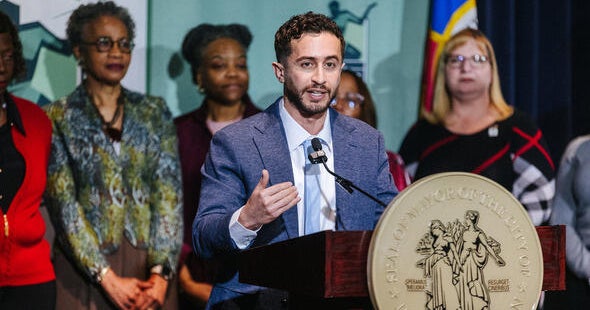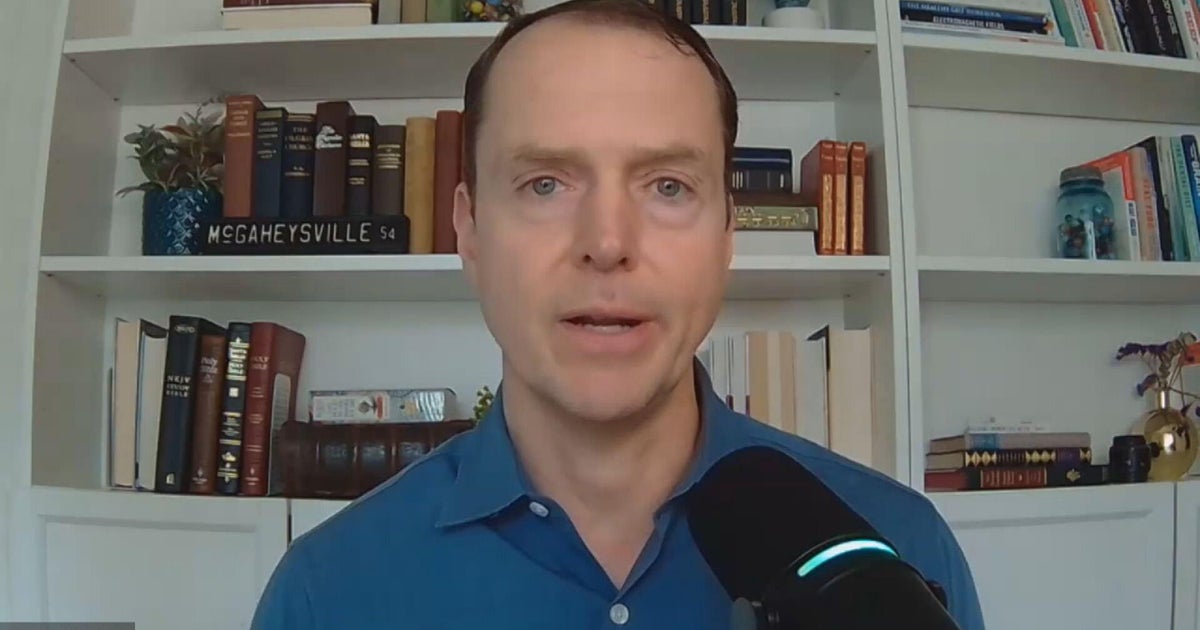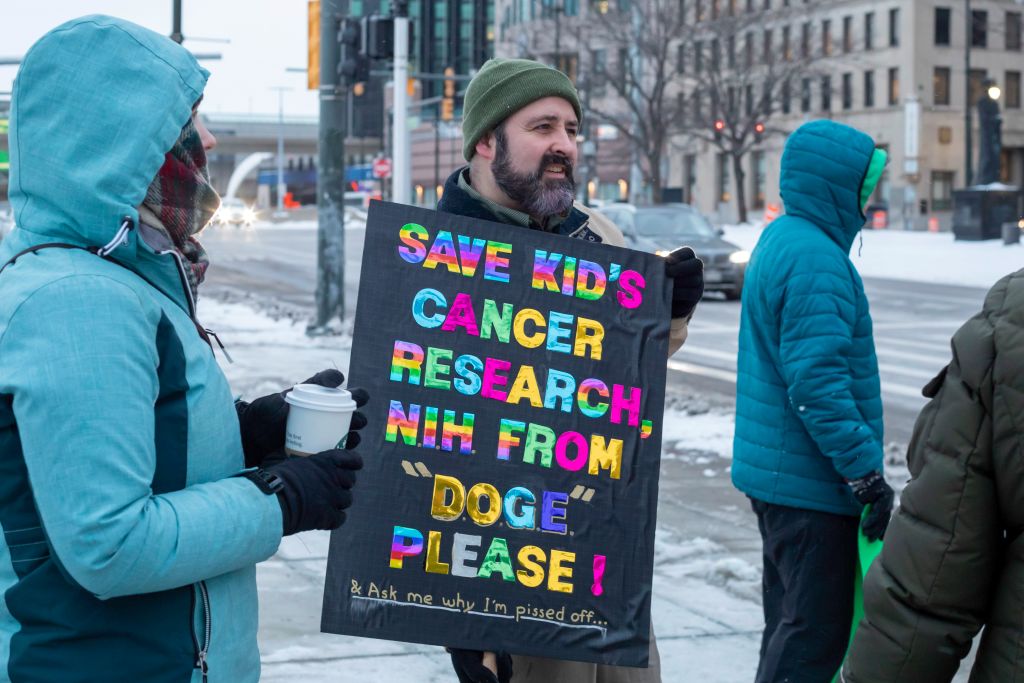Opioid painkillers: Best advice to help you avoid addiction
You're heading into surgery soon and your doctor has told you that you're going to need prescription painkillers. You can't help but think about all of the frightening reports over the last few years saying how easily people can become addicted to prescription opioids.
If you have a child or teen that needs the powerful pain drugs, it can make things feel even scarier.
Public health reports and study after study have shown that powerful prescription pain medications are a root cause for the current opioid crisis in the U.S. Opioid overdoses killed more than 33,000 people in 2015 and nearly half of overdose deaths involved prescription drugs, according to recent data from the U.S. Centers for Disease Control and Prevention.
Doctors say that while there's often good reason for a patient to be prescribed drugs like OxyContin, Vicodin or Percocet for a period of time, these pills come with serious risks.
"When someone is legitimately and appropriately prescribed an opioid, they can become dependent," addiction psychiatrist Dr. Laurence Westreich, an associate professor at New York University, told CBS News.
"Some people have chronic pain and opioids feel good. They help with anxiety -- a lot of people say they give a general feeling of well-being," he explained.
Westreich and other medical experts talked with CBS News about what to expect when it comes to using prescription opioids to manage severe pain and how to talk with your doctor and educate yourself ahead of time in order to help avoid the slippery slope of opioid addiction.
Before surgery
It's more important than ever that you have a frank discussion with your doctor ahead of surgery about what he or she is giving you for pain control afterward and how long you should expect to be on it, said Dr. John Renner, vice-chair of the American Psychiatric Association's Council on Addiction Psychiatry and a professor of psychiatry at Boston University School of Medicine.
"No one's recommending you withhold pain medications from someone having surgery or other major medical problems," Renner told CBS News, but he said research now shows physicians have too freely prescribed opioid painkillers over the last decade.
Narcotics are routinely prescribed for everything from wisdom tooth extractions in teens to joint replacement surgeries in the elderly, Renner said. Prescriptions for opioids have nearly quadrupled since 1999, according to the CDC. Overdose deaths have quadrupled since then, too.
About 80 percent of the world's prescription opioids are used by the U.S., where 207 million opioid prescriptions were issued in 2013, according to the National Institute on Drug Abuse.
Kids are extremely vulnerable. The journal Pediatrics reported recently that most American teenagers who abuse opioid drugs first received the pills from a doctor.
"Physicians were not aware of how high the risks were with opiate medications. The information in the literature was not accurate and helpful and the advertising by the pharmaceutical industry was far too aggressive. You had this unfortunate combination of too aggressive marketing and bad information for physicians and that led to problems," said Renner.
In younger people, opioids may have a social appeal, while in the elderly, they may help ease chronic pain or anxiety and depression, Renner said. What people don't understand is that it takes more and more of the drugs over time to provide the same pain-relieving effects.
Before starting them, you need a plan, agreed Dr. Aleksey Lazarev, an orthopedic surgeon at Lenox Hill Hospital in New York City.
"I outline expectations, including the amount of pain they will have post-operatively. I have that discussion pre-operatively. I explain that you will be in some pain after surgery and that it's acute and not expected to last more than three to five days and with each day it will get better and better," said Lazarev.
In the operating room, he almost always injects the incision site with a lidocaine medication that numbs the area to help with post-operative pain. Lazarev also prescribes short-acting narcotics for a few days, usually no more than 20 pills.
"I don't give any refills," he said.
But not all doctors do the same. One Mayo Clinic study found that 21 percent of patients meant to receive only short-term opioids end up getting prescriptions that extend for as much as three to four months. Another 6 percent continued the medications for longer than four months.
Even medical professionals are at risk. Renner said he was given a 30-day supply of opioids after a procedure last year, which was far too much.
In the pre-surgery conversation, Lazarev also emphasizes to his patients that within a few days after surgery they need to begin tapering off the prescription pain medicine by alternating it with non-steroidal anti-inflammatory drugs (NSAIDs), such as Motrin or Alleve, and using ice on the affected area. Some orthopedic surgeons recommend patients use a cooling machine, which works by pumping icy water through pads that can be wrapped around an injured joint -- a knee that's just undergone ACL surgery, for example.
"A combination of those things really makes a difference," said Lazarev.
Patients should share their medical histories beforehand and doctors should ask about any previous or current smoking, drinking or drug habits. People with a history of smoking or drug abuse appear to be at a greater risk for addiction, the Mayo Clinic study suggested.
A history of depression or other mental health issues may also make a patient more vulnerable to addiction to prescription narcotics, research shows.
Another precaution doctors can take: check medical databases. In New York, physicians are mandated to use a centralized computerized system to look up a patient's prescription history before prescribing opioids, Lazarev said.
"To look for multiple prescriptions. We do see it more than you'd think. People do shop for doctors. They go to different offices and hospital systems. In New York State, I can look up every patient and see if there is any suspicious practice going on. If they had surgery one year ago and had one prescription for Percocet that's not a problem, but if I see different physicians prescribing for different medications in different zip codes, that's a red flag. There were times I did not perform the surgery because they had this practice of medication shopping," said Lazarev.
Taking opioids may not be necessary for some procedures, and it's important to ask your health care provider if you really need them, especially if you have a history of addiction or mental health problems, Westreich said.
"Opioids are much overused for dental procedures. Most can be managed with NSAIDs such as Motrin or Naproxen or Tylenol," Westreich said. "People need to challenge their treating physicians and tell them."
After surgery
Within a few days after surgery, most patients can manage pain during the day with NSAIDs, and ice and elevation if it's an orthopedic injury, but taking a prescription opioid may help at bedtime if they're having trouble falling asleep due to pain, Lazarev said.
Physical therapy usually starts within a week after orthopedic surgery and can include ultrasound, soft tissue manipulation and massage, which can also treat discomfort and pain. Acupuncture is also used effectively in some people with pain.
But if you're still popping pain pills after a week, talk with your doctor about the safest way to wean off of them. The longer they're taken, the greater the risk for addiction.
In people without cancer who were prescribed opioids for pain by a physician, about 6 percent of those who got as little as a single day's supply of a narcotic painkiller were still on an opioid a year later, a recent CDC report found. The odds of long-term opioid use jumped to about 13 percent for patients who took the drugs for eight days or more, the CDC reported.
The odds of chronic opioid use and addiction increase when a second prescription is given or refilled.
Research also shows people who start taking a long-acting opioid or tramadol (Ultram) are more likely to stay on opioids than those given hydrocodone (Vicodin) or oxycodone (Oxycontin).
Warning signs
How do you know if you're beginning to have dependency problems with medication?
"If you're taking it for longer than is recommended," Westreich said.
Other signs of addiction: you're taking time to seek out more medication, dropping important obligations because of it, or skipping school or work well past the timetable your doctor said you'd be recovered.
Memory problems and trouble focusing can be warning signs, too. And if you find yourself going to different doctors for more medication because you're doctor won't keep prescribing it, then a problem exists, said Westreich.
If possible, ask a friend or family member to help you through your recovery period and track how much pain medication you're taking, making sure you're following the recommended dosing.
"People get into denial. They can have a lack of insight into what they're doing. Family members should use common sense. If you see the person really focused on the medication and lethargic or sleepy, don't believe what they say if they think they need more medication," he said.
Family and friends of patients who've had past addiction or alcohol problems need to be especially watchful. If you're worried, call the prescribing physician and an addiction specialist and ask them to work together, he said. Better yet, call them ahead of surgery and ask them to collaborate on the patient's pain control plan.
"We work together to make sure a person gets an appropriate amount of pain control. They will need more medication during treatment often -- because they have a higher tolerance for opioids -- and there's no problem with doing that, giving two to three days of heavier opioid medication and then tapering down over the next week," said Westreich.
Be sure and dump your leftover pills, said Renner. Many states have special days of the year when you can turn opioids and other prescription drugs in to your local police station or pharmacy. But Renner said if those days are months away, don't leave the medication around the house where children could find them.
Toddler fatalities linked to opioids have steadily increased over the last 10 years according to the CDC. In 2000, 14 children in the U.S. under age 5 died after ingesting opioids, but by 2015, the number climbed to 51. The children find the drugs and ingest them, possibly thinking the pills are candy. Just one opioid pill can lead to a lethal dose for a 35-pound child.
- Curious toddlers become tragic victims of opioid epidemic
- Overdoses skyrocket as kids eat opioids "like candy"
Renner said pills can be disposed of by crushing and mixing them with coffee grounds, then throwing the inedible mixture in the trash. Another option, Westreich said, is flushing them down the toilet.
"I understand the public health issues of not wanting them to wash into the water system and affect wildlife," he said, but keeping them around is potentially more dangerous.
None of the experts believe people in pain after surgery, or dealing with pain from another serious medical condition like cancer, should go without prescription pain medicines.
"It's silly to say opioids are evil. Pain needs to be treated," Westreich said, but thoughtful prescribing, patient education, and alternative pain control methods are key to reducing the risk.



